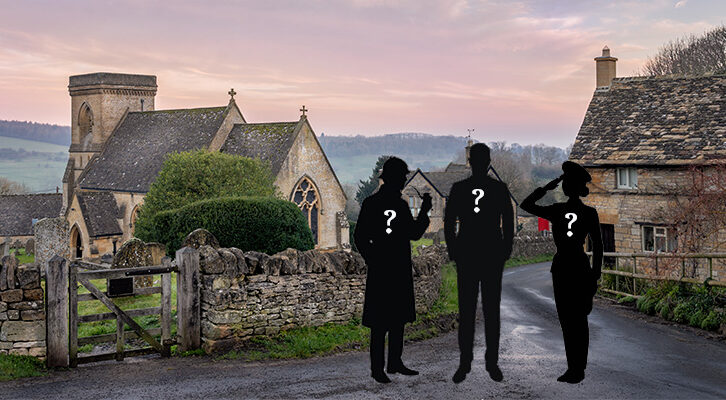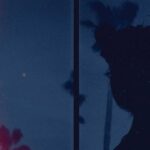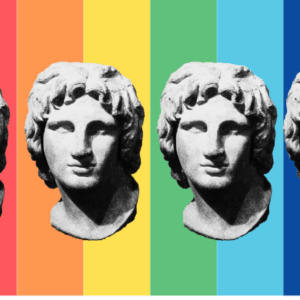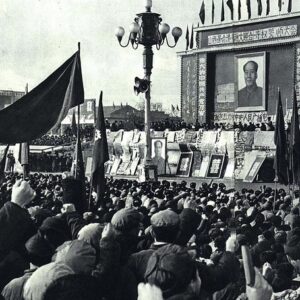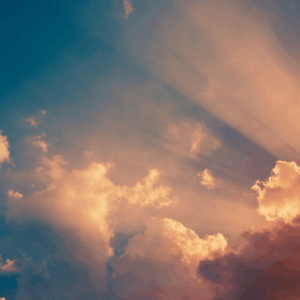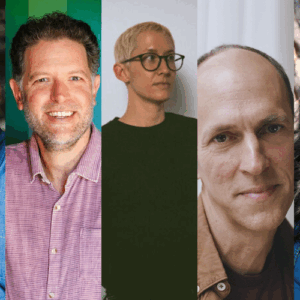
Ten Writers Reflect on Their First Big YES
T Kira Madden, Rowan Hisayo Buchanan, and Others
Describe Their Turning Points
What was your first Big Yes?
I was first introduced to this question by the writer Swati Khurana in 2015. When I think of the first Big Yes, I think of the moment that marks the first big shift, either external or internal, in the trajectory of a writer’s career or their understanding of themselves as a writer. I’ve carried the question with me through my own development as a writer, because, in an industry that oftentimes feels obsessed with national awards and accolades, most-anticipated and bestseller lists, it’s easy for me to convince myself that when I get there—wherever “there” may be—I will have finally made it. That “there” will be the achievement that defines or legitimizes my career as a writer.
But having asked this question now for a number of years, I’ve come to understand that a writer’s first Big Yes is usually far humbler (and no less meaningful) than I’ve been conditioned to expect. The stories I’ve heard are helpful reminders that the arc of a career is long and varied, and that the initial stages of success usually occur long before large-scale public recognition of one’s work.
Because I have yet to publish a full-length work, I’ve found it particularly helpful to ask this question of writers who have published one or two books, because of how inclined I am to attribute an author’s debut as the beginning of their career, rather than one point on a journey well underway. Recently, I reached out to some friends and writers whose work I admire, all of whom have published their first book in the last couple years, to see what they had to say about their first Big Yes.
*
T Kira Madden, author of Long Live the Tribe of Fatherless Girls (Bloomsbury 2019)
My first writing class, under the instruction of Anne-E. Wood, was my first Big Yes. I was 18 years old, a closeted lesbian and amphetamine addict, writing bad L Word fan fiction. It might be corny to say your first great teacher is your first Big Yes, but sometimes we read corny because it’s true, so true, embarrassingly true, and Anne-E. Wood having us read the beginning of David Copperfield and the stories in Black Tickets was true. And the way she asked us to each draw a house was true. She said, “Does a house always look like a triangle with a square window, the way we’ve always seen it drawn?” The answer was no. But she saw my house and said, “Yes, that’s your house.” And she was also the first to say, “Yes, you are a writer if you write so hard it makes you miserable.” I owed her everything for those yeses. I still do.
Francisco Cantú, author of The Line Becomes a River (Riverhead 2017)
The first Big Yes of my writing career was my decision to apply to MFA programs. I had just left a job in law enforcement and was trying to make sense of what it meant to have been part of an institution built upon structural violence. I could sense that writing would be my best tool for coming to terms with the experience, but I had always seen writing as a hobby, and considered the idea of becoming a writer a fantasy. I was leaving behind a job with good pay and benefits and knew the path toward writing would be filled with uncertainty—but I also knew if I didn’t find a way to make writing my central task, if I didn’t find a literary community that could challenge and inspire me, I’d never feel right. I decided to roll the dice and direct all my efforts toward getting a degree in nonfiction.
Eva Hagberg, author of How to Be Loved: A Memoir of Lifesaving Friendship (Houghton Mifflin Harcourt 2019)
The first Big Yes I ever got was magazine editor Martin Pedersen agreeing, over his strong doubts, to assign me—a 21-year-old research assistant trying to get my first byline—a print feature for the architecture + design magazine Metropolis. It was 2003. The writer I was working for then had told Martin I was brilliant, would do great, was a natural, etc., and Martin was really skeptical (thinking the writer just had a crush on me). But he happened to have a story about wildly complex German lighting systems in a European stadium that his editor was pushing, and he figured he’d have to rewrite anyway, so he assigned it to me as an impossible story. What Martin didn’t know was that I spoke German, which gave me a massive advantage. I reported the story, filed a draft, and to his total shock, he thought it was good. After that, I started writing for him regularly. Martin taught me so much of what I know today about how to report, write, and, most of all, think. My first book came out this year—which would never have happened without his first, totally begrudging, yes.
A thought uncurled in my brain: Oh, it’s almost like I’m a real writer now.
C Pam Zhang, author of How Much of These Hills is Gold (Riverhead 2020)
My first Big Yes was actually a no. I was a few years out of college and floundering as a writer when I made a new friend. We were about the same age. He had gotten his MFA, published in prestigious magazines, and committed to his craft, while I had prioritized my career in an industry that made me miserable, all the time making noises about art. I showed him my drawer novel, a mass of gorgeous, plotless sentences tangled around a hollow center. Tactfully, he told me it wasn’t working. It hurt, yet I emerged clearer-eyed, energized as if by a plunge into icy water. His no was an affirmation that he held me to a higher standard than I held myself to. We speak crudely of envy; what of those people who, by lived example, teach you to demand more of yourself? Months later I sent that friend my first real short story. Yes, he emailed back in response to that rough draft. Yes, this story would be published one day. That yes meant more than the actual acceptance that came years later.
Taneum Bambrick, author of VANTAGE (Copper Canyon Press/American Poetry Review 2019)
My first Big Yes came when I was offered the work-study “waiter” position at the Bread Loaf Writers’ Conference. I was fortunate that many people in the cohorts before mine worked both privately and publicly to better that program before I entered it. I was not skilled at networking, but I did have years of training in service work. Scraping plates and filling the water glasses of famous people was a way of being myself around them—of getting to know the poets and writers I admired and learned from. The private waiter gatherings, in a lamplit room connected to the barn, were precious to me. We read, edited, and championed one another’s work. We had fun as we began to understand the literary world together. Those people are still my most important community.
Rowan Hisayo Buchanan, author of Harmless Like You (W. W. Norton 2018) and Starling Days (Overlook Press 2020)
In 2011, I was a junior in college. I was writing short stories but had no idea if they’d go anywhere. Someone told me about a competition for students run by NPR’s Selected Shorts. The story had to be exceedingly short. It had to be inspired by the words “my private paradise.” I entered with a story about a family food fight. I still remember trying to describe the gold-chips of sweetcorn flying through the air. A few months later, I discovered I was one of the winners. I found myself in an auditorium in the Metropolitan Museum of Art, listening to Sonia Manzano, one of the actors from Sesame Street, read my words aloud. Later the story was played on the radio. And a thought uncurled in my brain: Oh, it’s almost like I’m a real writer now.
Jos Charles, author of Safe Space (Ahsahta 2016) and feeld (Milkweed Editions 2018)
The first yes—in the broadest sense—that comes to mind is an email exchange I had with the poet CAConrad. Up until that point, I had shared my work largely with peers, friends, schoolmates, a former teacher. I sent a draft of what was to become my first-collection, Safe Space, to CA on a long-shot hope. Their response was so very detailed, generous, encouraging. I would not have submitted to the places I did, nor applied to MFA programs, awards, presses, and so on, without their response to my work. I, quite unexceptionally, distrust the publishing marketplace as saying anything about a person’s capacity to produce useful work; meritocracy is as cruel an ideology in these places as any. But for one whom I so respected, whose work I read and loved and love, to acknowledge, encourage—it’s astounding—it was everything: a simple giving. Anything I’ve done since is after my exchange with CA (as one might say a poem is after, temporally and logically, another). I am still in their shadow, debt—that light.
Rachel Monroe, author of Savage Appetites: Four True Stories of Women, Crime, and Obsession (Scribner 2019)
I would say that my first Big Yes was the first assignment I received from The New Yorker—to write a story about #vanlife. I had been pitching a very kind editor there for over a year with no luck, although his rejections were always encouraging. Pitching stories involves so much rejection, and every time I’m tempted to give up entirely and apply to law school. Getting the go-ahead for an assignment at a magazine I loved and respected so much was a moment when I finally allowed myself to believe that there might be a real future for me in this business. “#Vanlife, the Bohemian Social-Media Movement” ended up being one of The New Yorker‘s 25 most-read stories of the year, which was wild.
I listened to the voicemail and my hands and feet went numb, the same cold shock I’d feel years later, when I sold my first novel.
De’Shawn Charles Winslow, author of In West Mills (Bloomsbury 2019)
As much as I have appreciated the praise my novel In West Mills has received from newspapers and members of the writing and publishing community, my first Big Yes came from an everyday reader. The first time I received a message of gratitude and praise from someone who wasn’t a writer or an academic, I felt I’d done something really good. More specifically, it was a great feeling to be told by African-American readers that they enjoyed and appreciated In West Mills. And these sentiments didn’t come just from readers from my home state of North Carolina; I’ve received an overwhelming number of messages from African-American readers in Detroit, Michigan, different parts of Georgia, and in Texas. These are the types of reader responses that make me want to keep doing what I do!
Julie Buntin, author of Marlena (Henry Holt 2017)
I was on a bus. I can no longer remember where I was going, or why. I do remember sitting next to an ex in a tense cloud of silence. This was 2011. My phone rang. A few weeks before, I’d learned I was a finalist for an essay contest sponsored by Sonora Review, news that already felt like winning. I wasn’t expecting a call. Outside, a parking garage, a freeway, a flat plane of gray sky. An unknown number; I didn’t answer. This was a time in my life when most unknown numbers were creditors. I listened to the voicemail and my hands and feet went numb, the same cold shock I’d feel years later, when I sold my first novel. I’d won—the essay would be published (a gorgeous standalone chapbook), a check would come in the mail (enough to pay at least one of those creditors), and suddenly, despite my ex smiling with teeth, and the bad weather outside the window, I understood that where I went was up to me.
Benjamin Schaefer
Benjamin Schaefer is a writer and editor from upstate New York. His fiction has appeared in The Best American Nonrequired Reading, Electric Literature, and Guernica, and he is the recipient of fellowships and grants from the Elizabeth George Foundation, the MacDowell Colony, the Millay Colony for the Arts, the Vermont Studio Center, and the Virginia Center for the Creative Arts.











